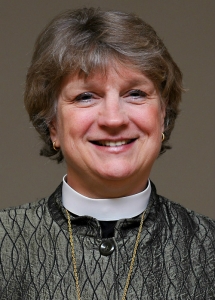 By Bishop Ann Svennungsen
By Bishop Ann Svennungsen
Should I vote by mail? Should I vote before November 3 at Early Vote Center?
If I vote on election day, will I risk getting COVID-19?
When can I expect the election results?
The questions surrounding November 3 seem to grow more complicated by the day. Christian Century notes that at least 500 international observers are planning to watch over the complexities surrounding America’s 2020 election. After years of monitoring other nation’s elections, this is an interesting reversal of roles.
“The questions surrounding November 3 seem to grow more complicated by the day.”
Yes, the questions abound. But, not the most basic question. Why vote? For the baptized people of God, voting is part of discipleship. Voting is a way we love our neighbor. Theologian Cynthia Moe-Lobeda notes that neighbor-love is the norm for followers of Jesus and it bears certain characteristics, including:
- Neighbor-love serves the well-being of those who are loved.
- Neighbor-love pertains to whomever my life touches directly or through social or ecological systems.
- Neighbor-love seeks justice.
- Neighbor-love is political.
LAST JUNE, the ELCA church council unanimously approved Government and Civic Engagement in the United States: Discipleship in a Democracy, providing more detailed characteristics of neighbor-love in the public square. The statement, proudly prompted by a 2019 memorial from the Minneapolis Area Synod, might be good devotional reading in these weeks before your November 3 decisions are made. Two brief quotes:
The ELCA holds to the biblical idea that God calls God’s people to be active citizens and to ensure that everyone benefits from the good of government (Jeremiah 29:7, Romans 13:1-7).
This church also strongly affirms voting, guided by faith-based values, as an exercise in citizenship. (Emphases in bold were added by me.)
“Neighbor-love pertains to whomever my life touches directly or through social or ecological systems.”
If you’d like even more background on what the ELCA recognizes as “faith-based values,” you can turn to the ELCA’s 28 social statements and messages. To my mind, these are remarkable gems our church offers all who seek guidance from Scripture and Lutheran theology for what neighbor-love means in today’s world.
However, if 28 social statements seem daunting, another option would be to register to watch a webinar this Thursday evening titled the Before We Vote Virtual Summit. The event is sponsored by the ELCA African Descent Strategy Team (ADST), the African Descent Ministries (ADM) desk, and the ELCA’s Advocacy office.
Finally, I invite us to devote ourselves to consistent prayerfulness in the weeks before and after the 2020 election. These are difficult days. And, we pray for God’s transformative power at work in the world so that all creation might flourish.
